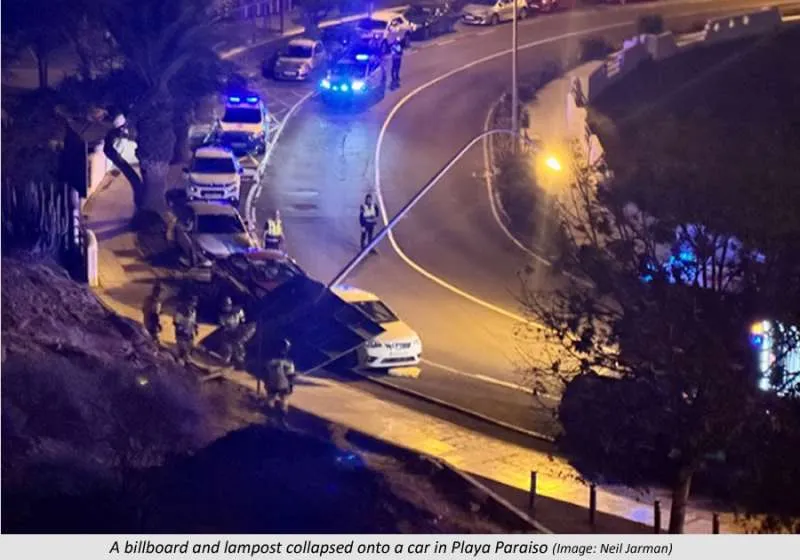Canary Islands maintain Maximum Alert for winds of up to 130 km/h
- 16-12-2024
- National
- Canarian Weekly
- Photo Credit: Gobierno de Canarias
The Canary Islands remain under maximum alert today (Monday) as extreme winds continue to batter El Hierro, La Gomera, and Tenerife.
The powerful gusts, forecast to reach speeds of up to 130 km/h in some areas, have prompted the regional government to maintain heightened precautions.
In Tenerife, the alert primarily affects northern and western municipalities of the island, including Guia de Isora and Adeje, with reports of falling trees, damaged infrastructure, and hazardous debris throughout the island.
Coastal and elevated regions are particularly vulnerable, with gusts expected to intensify.
Southern and eastern areas of Tenerife, including Arona, San Miguel de Abona, Granadilla de Abona, and Santa Cruz de Tenerife, remain on a lower alert level but are still experiencing challenging conditions. These areas are dealing with gusts ranging between 60 and 90 km/h, which could escalate depending on changing weather patterns.
Regional Weather Forecast
The extreme weather is part of Storm Dorothea, which has brought strong south and southeast winds to the western Canary Islands. Wind speeds are averaging 40 to 70 km/h in many areas, with higher gusts recorded in elevated and exposed locations. The Spanish State Meteorological Agency (AEMET) has issued a red alert for El Hierro.
Meanwhile, La Gomera and parts of Tenerife also face potentially devastating gusts of 120 to 130 km/h. On the eastern islands of Gran Canaria, Fuerteventura, and Lanzarote, conditions are comparatively calmer but still warrant pre-alerts for gusts of up to 90 km/h in exposed northern and western areas.
Emergency Response
Since the onset of the storm, the Canary Islands’ Emergency Coordination Centre, CECOES, has responded to over 300 incidents. These have predominantly involved damage caused by high winds in Tenerife and El Hierro.
Fallen power lines, collapsed walls, and structural damages have been widely reported, and even a 'rogue' porta-loo that hit two police cars, disrupting daily life and creating dangerous conditions.
Authorities have urged residents in affected areas to stay indoors and avoid unnecessary travel. Schools have been closed as a precaution in the hardest-hit regions, and events such as concerts have been postponed to prioritise public safety.
Advice to the Public
The public are reminded to secure loose objects, avoid outdoor activities in exposed areas, and keep emergency contact numbers readily available. The government has also advised the public to stay updated through official channels as the storm progresses.
The Canary Islands, renowned for their mild climate, are no strangers to severe weather during the winter months. However, the intensity of Storm Dorothea serves as a stark reminder of the region's vulnerability to extreme weather events, necessitating continued vigilance and awareness.

Other articles that may interest you...
Trending
Most Read Articles
Featured Videos
TributoFest: Michael Buble promo 14.02.2026
- 30-01-2026
TEAs 2025 Highlights
- 17-11-2025



























































